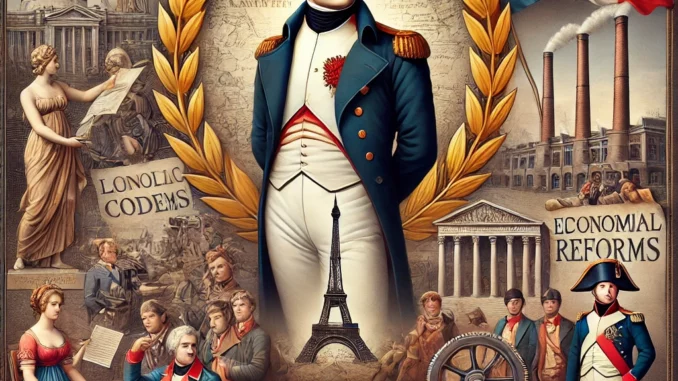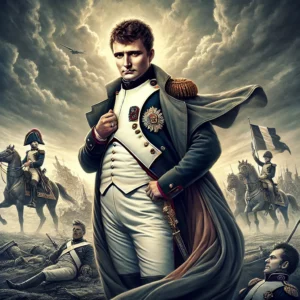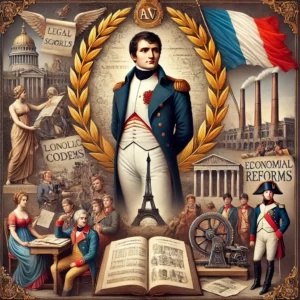
Napoleon Bonaparte stands as one of history’s most influential figures, remembered for his military prowess, visionary leadership, and transformative reforms. This article delves into his life, career, and enduring impact on the modern world.
Table of Contents
| Section | Details |
|---|---|
| 1. Who Was Napoleon? | An overview of his early life and rise to prominence. |
| 2. Military Brilliance | Key victories, strategies, and campaigns that defined Napoleon’s legacy. |
| 3. The Rise to Emperor | How Napoleon became the Emperor of France. |
| 4. Reforms Under Napoleon | Innovations in law, economy, education, and governance. |
| 5. Napoleon’s Fall from Power | The events leading to his exile and the end of his reign. |
| 6. Legacy and Historical Impact | How Napoleon shaped Europe and influenced the modern world. |
| 7. Frequently Asked Questions | Addressing common queries about Napoleon’s life and achievements. |
1. Who Was Napoleon?
Napoleon Bonaparte (1769–1821) was born on the island of Corsica into a modest family. Showing exceptional talent and ambition from a young age, he rose through the ranks of the French military during the tumultuous years of the French Revolution. His ability to inspire troops, coupled with his strategic brilliance, made him a national hero.

2. Military Brilliance
2.1. Revolutionary Strategies
Napoleon revolutionized warfare with his innovative tactics, including rapid troop movement and concentrated artillery strikes. His campaigns are studied in military academies to this day.
2.2. Key Battles
- Battle of Austerlitz (1805): Known as Napoleon’s greatest victory, where he defeated the combined forces of Austria and Russia.
- Battle of Marengo (1800): A turning point that solidified his reputation as a military genius.
- Peninsular War and Russian Campaign: Highlighting both his triumphs and miscalculations.
3. The Rise to Emperor
In 1804, Napoleon declared himself Emperor of France, marking the beginning of the First French Empire. His coronation at Notre Dame Cathedral was a statement of his power and ambition. Under his rule, France expanded significantly, becoming a dominant force in Europe.
4. Reforms Under Napoleon

Napoleon’s domestic policies were as impactful as his military conquests.
4.1. The Napoleonic Code
This legal framework reformed civil law and became the foundation for legal systems in many countries.
4.2. Educational Reforms
Napoleon established lycées (secondary schools) to provide standardized education and promote meritocracy.
4.3. Economic Policies
He stabilized the French economy through tax reforms, the establishment of the Bank of France, and fostering industrial growth.
5. Napoleon’s Fall from Power

Despite his genius, Napoleon’s ambition led to overextension.
5.1. The Russian Campaign (1812)
The invasion of Russia was a disastrous misstep, with harsh winters and scorched-earth tactics decimating his army.
5.2. The Battle of Waterloo (1815)
Napoleon’s final defeat at the hands of the Duke of Wellington and his allies marked the end of his reign.
5.3. Exile and Death
He was exiled to the island of Saint Helena, where he spent the last years of his life writing memoirs and reflecting on his legacy.
6. Legacy and Historical Impact
Napoleon’s influence extends far beyond his lifetime.
- Redrawing Europe’s Map: The Napoleonic Wars led to the reshaping of European borders.
- Modernizing Governance: His reforms influenced administrative and legal systems worldwide.
- Cultural Legacy: Napoleon remains a symbol of ambition, resilience, and leadership.
7. Frequently Asked Questions
7.1. What is Napoleon most famous for?
Napoleon is renowned for his military conquests, the Napoleonic Code, and his role in shaping modern Europe.
7.2. Why did Napoleon fall from power?
His overambitious campaigns, including the disastrous invasion of Russia, and the coalition of European powers against him led to his downfall.
7.3. Where is Napoleon buried?
Napoleon’s tomb is located at Les Invalides in Paris, France.
7.4. Was Napoleon short?
Contrary to popular belief, Napoleon was of average height for his time, around 5’6” (1.68 meters).
7.5. What was Napoleon’s greatest achievement?
Many consider the Napoleonic Code, which reformed legal systems, to be his most enduring contribution.
7.6. Did Napoleon win at Waterloo?
No, Napoleon suffered a decisive defeat at the Battle of Waterloo in 1815.
Conclusion
Napoleon Bonaparte’s life is a testament to the power of ambition, vision, and resilience. Despite his eventual downfall, his influence on modern governance, law, and military strategy is undeniable. Napoleon remains a figure of fascination, embodying the heights and perils of extraordinary leadership.